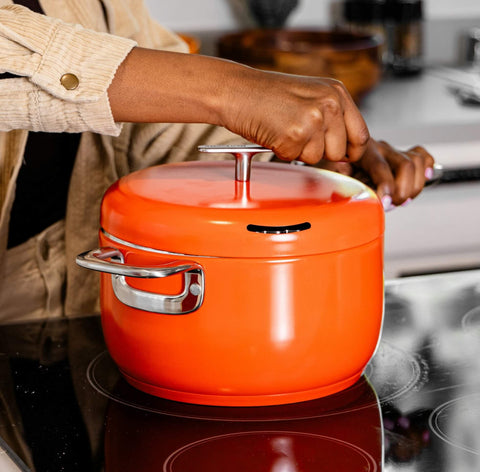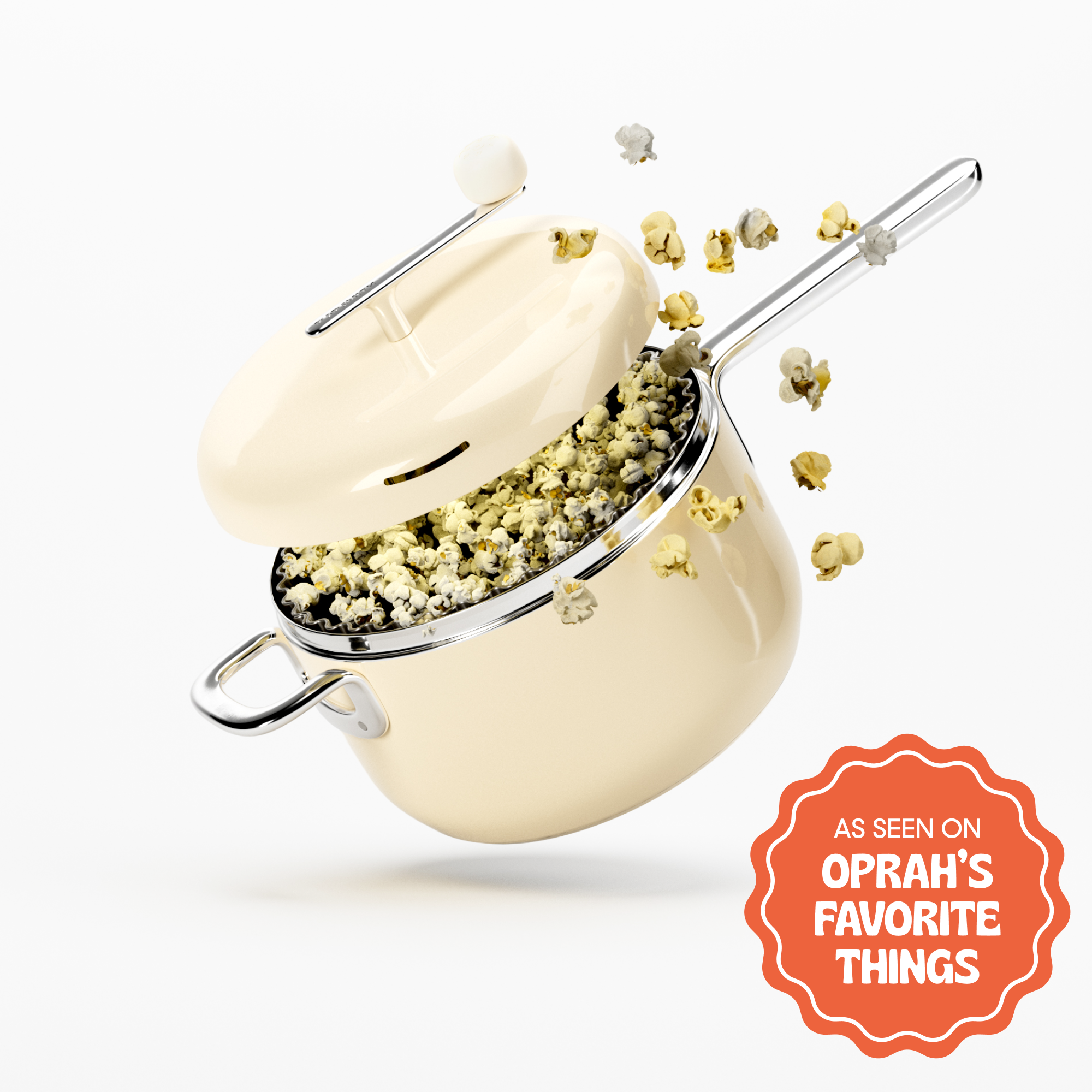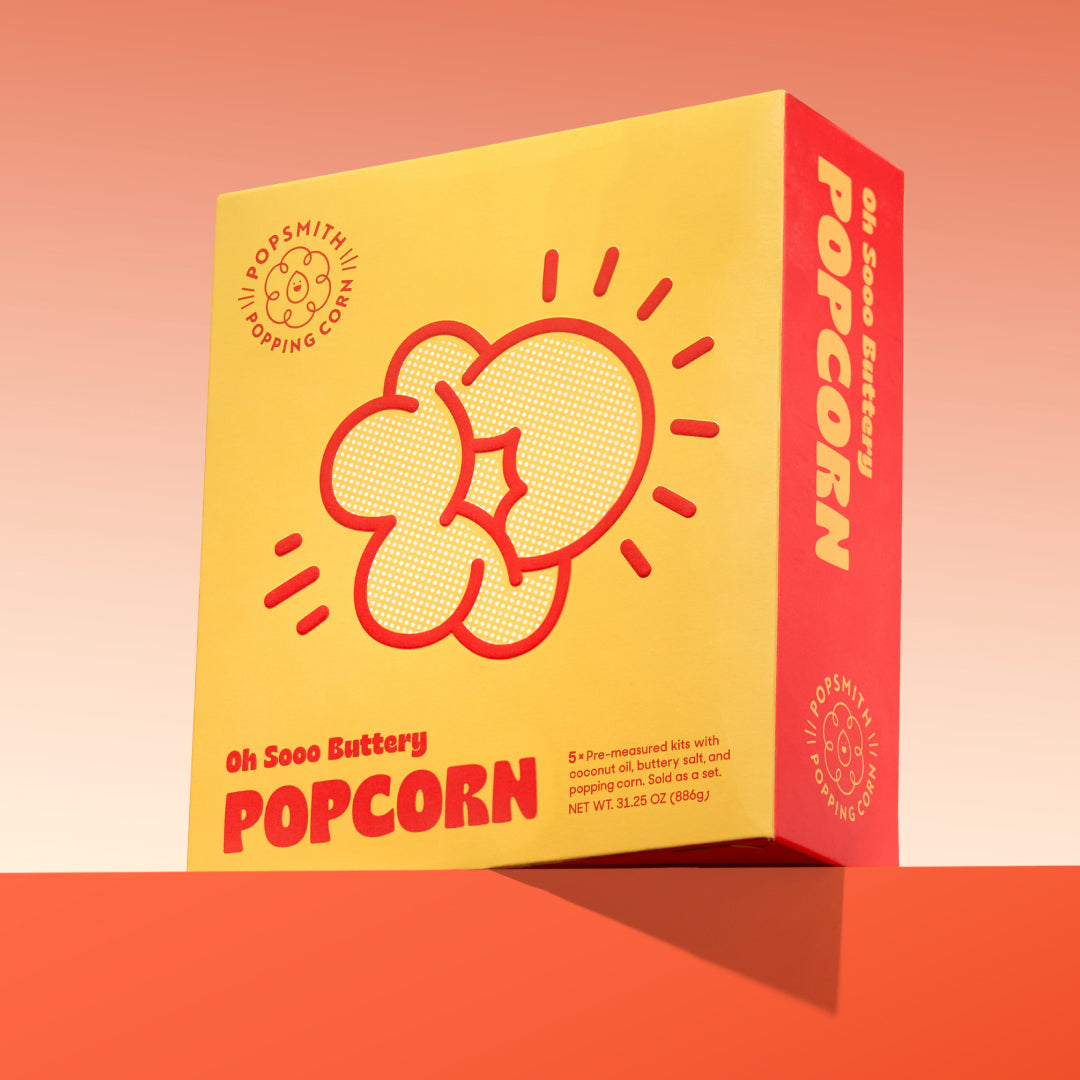There are so many reasons to love popcorn — it's versatile, pretty healthy, and absolutely delicious. We're not surprised that many folks keep kernels in their cupboards, ready to pop any day of the week.
Now when you think about popcorn, movie theater popcorn may be the first thing that comes to mind. This popcorn is often popped in high-fat oils and then slathered in butter and sprinkled with salt. Clearly, it's not the most nutritious snack out there.
But popcorn isn’t usually unhealthy.
In this blog post, we're going to go over the many health benefits of popcorn, check out the calorie count in different types of popcorn, and gather all the nutritional information you're itching to know about your favorite snack.
Let's get started:
How Many Calories Are in Different Types of Popcorn?
Calorie count can vary between different types of popcorn.
A lot depends on how you prepare and season your popcorn. Popcorn popped in oil obviously has more calories than air-popped popcorn, for example.
The number of calories in popcorn will also vary from brand to brand. Pre-packaged popcorn will differ depending on the ingredients each company uses.
We know it's a lot to think about. But we hope this guide gives you a better idea about the calories in popcorn:
Air-Popped Popcorn
Air-popped popcorn is the healthiest popcorn you can make. Instead of oil, it relies on hot air to pop the kernels. This means you get fewer calories with each serving.
A three-cup serving of air-popped popcorn gives you:
- 93 calories
- 3 grams of protein
- 18.6 grams of carbohydrates
- 1 gram of fat
- 3.5 grams of fiber
Eat air-popped popcorn while it's warm to make the most out of it. If you want to add any toppings or seasoning, just be sure they're also healthy and in line with your dietary requirements.
Microwave Popcorn
Microwave popcorn is one of the most popular types of popcorn. You can find it in any grocery store. It's also inexpensive and easy to make. All you need to do is put a bag in the microwave and press a few buttons.
But this convenience comes at a price. Microwave popcorn usually has higher amounts of trans fats and cholesterol compared to other kinds of popcorn.
A three-cup serving of an average bag of microwave popcorn contains:
- 213 calories
- 3 grams protein
- 15 grams of carbohydrates
- 15 grams of fat
- 3.4 grams of fiber
Stovetop Popcorn
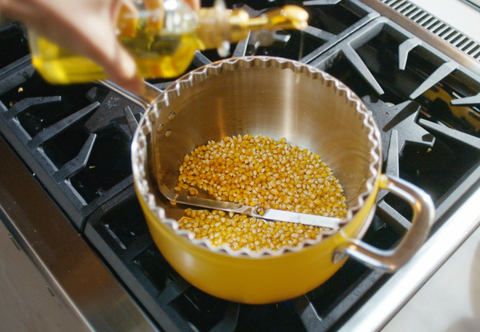
One of the reasons people love making stovetop popcorn is because it's fully customizable. You can add any toppings and use any type of oil you like, which is great if you like changing up your snack routine but even more awesome when you're aiming to have more control over what you eat.
With that said, it's tricky to say exactly how many calories, protein, and carbs are in stovetop popcorn since everyone uses different oils and seasonings.
However, we can give you a tip to keep the popcorn healthy — use lower calorie oils like coconut oil, avocado oil, or olive oil when making your popcorn on a stainless steel stovetop popcorn popper. Canola and vegetable oil are also good options but they tend to be more processed.
FUN FACT: One serving of Popsmith's Oh Sooo Buttery Popcorn is 140 calories, while a serving of our Classic Kettle Popcorn is 120 calories.
Does Popcorn Have Any Health Benefits?

Popcorn has tons of health benefits. It's a healthy snack when enjoyed in moderation. Popcorn is generally low in calories, high in fiber, and is a good source of antioxidants and vitamins.
Here's a closer look at all the details:
High in Dietary Fiber
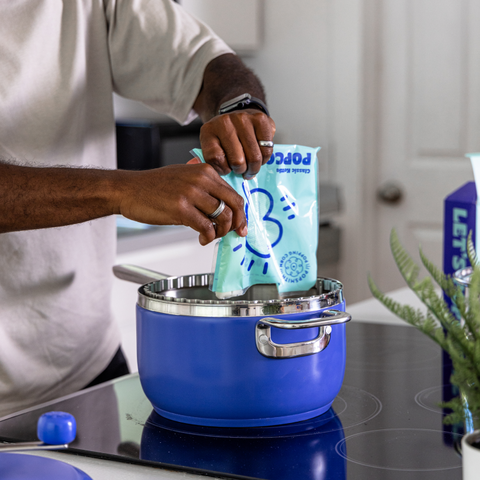
Dietary fiber is an important part of your daily diet. The recommended daily amount of fiber is 25 grams for women and 38 grams for men. You need it to help with your overall gut health. It can even aid in weight loss.
Popcorn is made from corn, which is naturally high in fiber. A 100-gram serving of popcorn has about 15 grams of fiber.
Great Source of Antioxidants
Antioxidants are molecules that defend your body against free radicals. Food that's high in antioxidants will help your body keep those free radicals in check and improve your overall health. Popcorn is rich in an antioxidant called polyphenol. Polyphenol helps protect your cells from damage, giving you yet another reason to make popcorn a regular snack.
Consuming a good amount of polyphenols can also help with blood circulation and digestive health as well as reduce the risk of cancer.
High in Vitamins and Minerals
You might be surprised to learn that popcorn is also packed with vitamins and minerals. A 100-gram serving of air popped popcorn contains the following:
- Vitamin B1 (Thiamin): 7% of your recommended daily value
- Vitamin B3 (Niacin): 12% of your recommended daily value
- Vitamin B6 (Pyridoxine): 8% of your recommended daily value
- Magnesium: 36% of your recommended daily value
- Phosphorus: 36% of your recommended daily value
- Iron: 18% of your recommended daily value
- Potassium: 9% of your recommended daily value
- Copper: 13% of your recommended daily value
- Manganese: 56% of your recommended daily value
- Zinc: 21% of your recommended daily value
More Popcorn Fun with Popsmith
Pretty impressive, huh?
It's amazing how many health benefits you can gain from a bowl of popcorn. And the best part is that you don't have to stick to plain, unseasoned popcorn. With the Popsmith Popper, you have the freedom to experiment with different oils and healthy popcorn toppings, ensuring every batch is not only nutritious but also flavorful.
Be sure to visit our blog often for more popcorn recipes, educational articles, and snacking inspiration. Now go make yourself a batch of your favorite snack because you deserve it!
FAQs About Popcorn Nutrition
What is considered a single serving of popcorn?
One serving of popcorn is about 4-5 cups of popped popcorn. You can get a serving of popcorn from two tablespoons of unpopped popcorn kernels. It's quite easy to eat popcorn by the handful, but if you're only looking to eat a serving size, stick to this amount.
Is popcorn a good snack for weight loss?
Popcorn can be a very good snack for weight loss. It's high in dietary fiber and also has a low-calorie count. Just practice moderation when eating popcorn with overly salty seasonings or extra buttery toppings, as these can decrease the nutritional value of this healthy snack.
Does popcorn increase the risk of heart disease?
Popcorn is high in fiber and is also a whole-grain food. This has actually been linked to reducing the risk of heart disease, rather than increasing it.
What are the healthiest oils and seasonings to add to popcorn?
You've got a few choices when it comes to flavoring your popcorn. Some of the best low-calorie oil options include coconut oil, olive oil, and avocado oil. These are all full of healthy fats.
For toppings, you can never go wrong with a small amount of salt. You can also use nutritional yeast, chili powder, garlic powder, or curry powder to add a lot of flavor without sacrificing health benefits.


